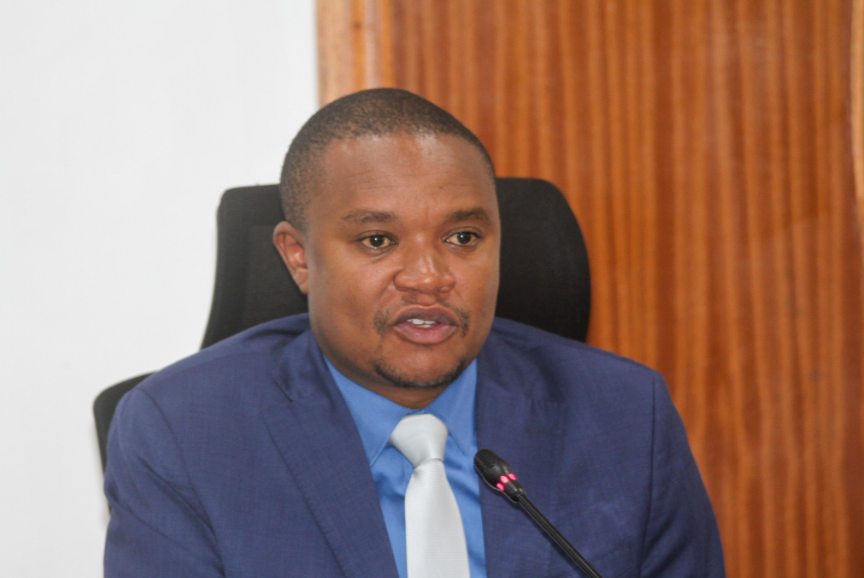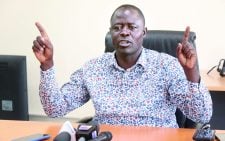Alarm as parliamentary committees now turn into money-minting ATMs

Previously held in high esteem over their roles in investigating corruption scandals, scrutinising public spending, and holding the Executive to account, parliamentary committees are apparently under scrutiny for allegedly bungling investigations into high profile graft cases.
At the centre of the accusations against MPs are bribery scandals, compromised probes, poor leadership, lack of transparency and political interference in the committees.
It has become common for MPs, through various parliamentary committees, to summon public officials and heads of government agencies and private firms implicated in any scandal.
But questions have often arisen why parliamentary committees have always rushed to conduct investigations on various scandals within government but fail to implement resulting actions, particularly those touching on proposed disciplinary measures on high profile individuals, raising concerns about their effectiveness and impact.
“These committees have abrogated themselves the mandate of holding too many hearings and summoning anybody at whim under the guise of parliamentary committee investigations. But in reality, they remain toothless as no tangible action on corruption has ever come from them,” says Machakos Deputy Governor Francis Mwangangi.
He also says there have been many instances where the MPs through their parliamentary investigations, have ended up duplicating the works already being undertaken by the Directorate of Criminal Investigations (DCI), Ethics and Anti-Corruption Commission (EACC) and Office of the Directorate of Public Prosecutions (ODPP).
“When you summon for questioning individuals who are already under active investigation by the DCI or EACC, or who are being prosecuted by the ODPP, this is open interference with their work,” Mwangangi says.
Two weeks ago, MPs raised eyebrows when the National Assembly mandated the House Committee on Health to conduct an 80-day public inquiry into allegations of unethical kidney transplant procedures at Mediheal Hospital’s Eldoret branch. The move was taken barely a day after Health Cabinet Secretary Aden Duale had established a 13-member committee comprising professionals, to probe the same issue, bringing to the fore the number of investigations commenced by Parliament which have ended up not being implemented or have been stopped midway.
Repeated probes
The Departmental Committee on Health chaired by Seme MP James Nyikal said it had commenced the inquiry following public concerns and a recent exposé implicating the hospital in possible breaches of professional ethics, transplant tourism, and the commercialisation of organ donations.
But despite the move, questions have now emerged over whether some of the investigations commenced by Parliament are necessary owing to the fact that most of them are repeated probes that had previously been undertaken by their predecessors.
In some instances, reports of the investigations are yet to be produced while in other cases, recommendations resulting from the investigations have never been acted upon despite millions of shillings having been spent on them.
Apart from the organ transplant probe, Parliament has also initiated investigations into the Sh 250 billion Adani deal that was meant for the upgrading of the Jomo Kenyatta International Airport (JKIA). Others are probe into the Sh16.5 billion edible oil scandal, the condemned sugar that found its way into the country and the re-opening of fresh probe into the Kenya Medical Supplies Agency (KEMSA) following the loss of billions of shillings relating to Covid-19 funds.
Despite experts from the Ministry of Health already undertaking comprehensive investigations into the organ trafficking and irregular kidney transplants, Nyikal insisted their inquiry aims to examine the legality, ethical compliance and oversight of kidney transplant services at Mediheal in order to recommend necessary legal or policy reforms to safeguard the integrity of the country’s healthcare system.
“This is a serious matter that touches on the dignity of life and the reputation of Kenya’s medical profession. We intend to get to the bottom of it,” said Nyikal.
He added: “We are going to ask critical questions. Were the procedures at Mediheal in line with the Health Act and Human Tissue Act? Was there evidence of organ commercialisation? Were donors fully informed, or were they deceived or coerced into donating?”
The Ministry’s committee, composed of experts has been given a three-month grace period to submit a detailed report to the government relating to the matter.
“We want a process rooted in truth, not one driven by optics or bureaucracy. The safety, dignity, and rights of recipients, donors, families, and healthcare providers must be safeguarded at every step,” said Duale.
Only early this year, MPs were forced to stop the probe into the Sh 250 billion Adani deals after President William Ruto cancelled the contracts that encompassed the expansion of JKIA and the KETRACO energy transmission project. The President disclosed that his decision had been based on credible information from investigative agencies and international partners, aligning with Kenya’s constitutional principles of transparency and accountability.
Extortion avenues
“Of the many difficult assignments I have undertaken, this fight against corruption is one I now take on with resolve going forward. Let this serve as notice to all,” he said.
Members of the Senate Transport Committee, who had commenced investigations into the deals, stopped their works without telling Kenyans the individuals who had been behind the deals that had been described as “major scams in the making”.
Ironically, the Senators who sit on the committee, came out singing hallelujahs over the President’s “wise decision” to cancel a deal that had been shrouded in secrecy and corruption but forgot to tell Kenyans the faces of the shady characters behind it.
And as the Senate Committee purported to delve into the Adani deals, the National Assembly’s Public Investments Committee on Commercial Affairs & Energy, chaired by Pokot West MP David Pkosing had directed the Kenya Airports Authority (KAA) to suspend all further engagements with the Adani group until a special audit of the tender award process was conducted.
“This Committee cannot avoid a special audit. There is a high level of distrust in this country. As implementers of government policy, you must recognise this reality. If you continue down this path, JKIA will suffer,” Pkosing had then said.
The Adani deal aside, Kenyans are still waiting for the MPs’ report of the Senate Committee on Trade on the Sh16.5 billion edible oil scandal through which the Kenyan taxpayer lost Sh 6.6 billion out of the Sh 9 billion allocated by the government to the Kenya National Trading Corporation (KNTC) for the program.
The same matter had also been taken over by the Ethics and Anti-Corruption Commission (EACC) that claimed that about Sh30 billion, and not just the Sh.16.5 billion could have been embezzled and was under investigation.
“We are investigating to establish what happened, who were involved, and how much money was lost,” then EACC chief executive Twalib Mbarak had said.
Also still pending is the report of the National Assembly’s Trade committee on the condemned sugar that found its way back into the market, jeopardising the lives of Kenyans.
A preliminary report by the committee had accused Kenya Revenue Authority (KRA), the Kenya Bureau of Standards (Kebs), National Environment Authority (Nema) and the Agriculture and Food Authority (AFA) for sleeping on the job.
Immediately after the constitution of the 13th parliament, members of the National Assembly reopened investigations into the loss of Covid-19 funds at Kenya Medical Supplies Agency (KEMSA) through the Public Investments Committee on Social Services, Administration, and Agriculture (PIC-SSAA) despite the matter having previously been being investigated by five committees of the Senate and the National Assembly since 2020. The tendency by MPs to undertake investigations into mega scandals with the reports gathering dust on the shelves in various offices has cast them as mere bodies of investigation rather than mechanisms for change.
Some of the MPs have been accused of using the committees to extort from individuals adversely mentioned in some of the scandals.
“There is a joke in Parliament that some MPs don’t wait for tenders anymore; they just join a committee,” said a former parliamentary staffer who requested anonymity.
“You sit in a committee investigating a scandal worth billions, and suddenly, members begin missing sittings, softening questions, or even exonerating the guilty,” the MP claimed.
In 2023, for instance, members of a certain committee of the National Assembly came under scrutiny after it was reported that certain MPs received inducements during hearings on some scandal. Despite credible reports and whistleblower accounts, the final report tabled in the House exonerated key figures, citing “lack of sufficient evidence.” Committee trips—especially benchmarking missions abroad—are another avenue exploited for illicit gains.
Whistleblowers allege that some foreign “fact-finding missions” are sponsored by private entities under investigation, effectively turning oversight into a paid holiday.
In return, the companies receive sanitised reports or are left out of final findings entirely.
“Some companies know the drill: if you’re under investigation, don’t hire lawyers—just organise a trip to Dubai,” quipped a civil society activist with a leading anti-corruption NGO.
“Parliament cannot be both the referee and a player in the corruption game,” said TI-Kenya Executive Director Sheila Masinde. “We must end the culture of Parliamentary Committees being used as ATMs,” she says.












